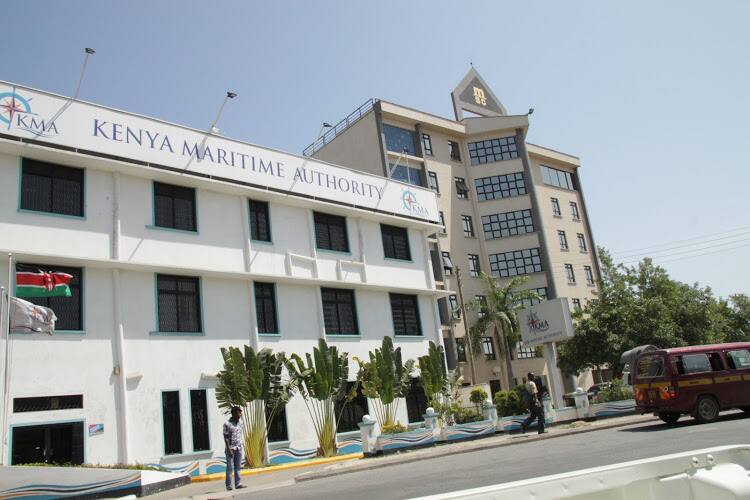Probe reveals salaries scam at maritime agency

An audit report has brought to the fore mismanagement and corruption at Kenya Maritime Authority (KMA), a semi-autonomous government agency in charge of regulatory oversight in the maritime industry.
The report, the results of a probe conducted for the period of January 2019 to June 2022, revealed gross misconduct and integrity issues among the parastatal’s top management that included the operation of two parallel payroll systems where some staff members earned higher salaries for several months and reduced in subsequent months.
Employees salary scales are also pegged to their relationship with the management, notwithstanding their qualifications, expertise and experience, according to the report.
The assessment conducted by technical officers from the Directorate of Public Service Management (DPSM) analysed the wage bill trends and variation for the three-year period and reviewed allowances paid through the period compared to the Human Resource guidelines.
The team also compared the processed net pay versus the money paid to the bank alongside compiling recommendations of actions that the board should undertake to enhance integrity.
Among the revelations of the probe is irregular promotion of a section of employees while some workers remained on the same job grade for many years.
The audit also showed that the salaries of some employees were, during the period of assessment, being reduced instead of being increased periodically as per the labour laws.
Interestingly, some workers, according to the report, had higher salaries in some months and lower in succeeding months and years without any explanation.
The report cites several incidents of salary payment inconsistencies. For example, between January and June 2020, an employee code named 2023 in job group KMA 3 earned Sh329,500 a month, but in July 2020 and April 2022, her salary was reduced to Sh164,750.
Another employee, code named 2047, was paid a monthly salary of Sh170, 000 between January and May 2020 before it was slashed to Sh110,000 in the month of June and subsequently Sh92,750 in July.
An employee code named 2054 in job group 4 took home Sh205,500 between January and May 2020 before it was slashed to Sh133,575 in June and Sh102,750 between July 2020 and April 2022.
“The Director General should produce evidence of the reason for reducing salary of the employees contrary to the Employment Act, failure to which, payment of arrears be considered to the affected employees and action be taken against the responsible employees,” the report recommends.
Other employees with salary discrepancies included 2055 from Sh449,500 then Sh292,175 and subsequently Sh224,750 by April 2022; 3048 from Sh225,500 to Sh146,575; 4102 from Sh350,000 to Sh241,800 and 5106 from Sh105,500 between April to May 2020 and Sh125,500 between April and December 2021 and subsequently to Sh68,575 between January to April 2020 and Sh75,000 in January and April 2022, among others.
“The payroll for KMA is not integrated with the staff register. This posed a challenge since the team could not establish possible reasons why some employees had missing salary in various months/years,” the report states.
There are also cases where employees were paid earlier than their date of appointment, a clear conflict on the date of first appointment vis-a-vis the dates they were first paid in the payroll.
Shockingly, the report showed that some employees had no academic qualifications in their files, while others had no letters of appointment despite being appointed to hold senior and key positions.
“The team proposes that a comprehensive skills Audit be undertaken to align the current skills to the authority’s strategic goals by placing the staff where their academic and professional requirements are needed,” the report recommends.
Payroll system
The task force wants investigations undertaken to ascertain the inconsistencies in the salary progression and increment as well as review of all files to ensure all employees’ files have letters indicating their salary progression and increment both belated, current or future for uniformity purposes.
Also, the report puts KMA on the spot for allegedly infiltrating payroll, a situation that has resulted in loss of taxpayer’s money to non-deserving workers.
“The authority should consider the adoption of an integrated payroll system. This will limit the need for issuance of letters to employees every year showing the annual increment. It will also limit the cases of double payment,” the report states.
At the centre of the mess, the technical team discovered the use of an unreliable payroll system that is not adopted by the relevant Human Resource bodies globally.
“We recommend that the authority considers changing their current payroll system to a more reliable Hr/payroll system like IPPD/GHRIS which have been tested and tried in the public service and also adopt Unified Payroll Numbering System (UPN),” sections of the report suggests.
According to the auditors, the authority should also consider adopting and implementing the approved SRC allowances on commuter and house allowance fully, carry out an external periodical payroll audit to minimise cases of payroll infiltration and harmonise payment of leave allowance once a year for better management and efficiency.
“All the overpayment should be recovered from the officers who have been paid illegal payments against the HR guidelines while further investigations for persons culpable for the malpractices should be surcharged accordingly,” the technical team advised.
On the training of employees, the technical team discovered that the management had not been keeping proper documentation for staff proceeding for training both locally or outside the country including showing Course Approvals as per the Human Resource Development Policy, 2016
“There were no clear records on the committee responsible for management and co-ordination of staff training (No Committee Minutes for Approval of training, no records of who the sponsor of the training was, no records on the cost of training such as Pro-forma Invoices),” the report reads.
“Some officers were sponsored by the Authority to undertake training that was irrelevant to their current cadres and career growth,” the auditors further said.
The auditors stated that in some instances, KMA gave non-existent training as they provided no evidence for staffers, they claim underwent career growth courses.
“In some instances, there were no training reports or any evidence that sponsored employees actually undertook the training. This was evident especially in the foreign training where proof of travel such as stamped passport, travel clearance was missing in the files,” the auditors said.







